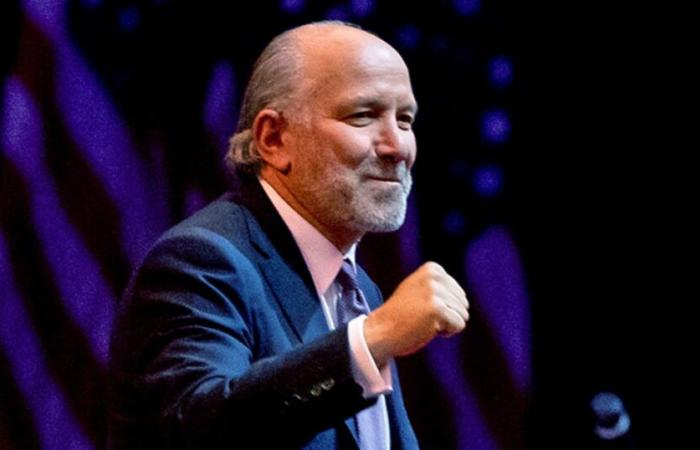As a physician on the front lines of public health, I find myself in a state of constant disbelief and growing alarm, watching the level of disinformation and dangerous false rhetoric around public health emanating from Donald Trump’s presidential campaign. A recent CNN interview with Howard Lutnick, co-chair of the Trump-Vance transition team, has sent shockwaves through the medical community. Lutnick’s casual endorsement of long-debunked vaccine conspiracy theories wasn’t just a momentary lapse in judgment — it was akin to tossing a lit match into a powder keg of public health concerns.
But the true bombshell came when Lutnick suggested that Robert F. Kennedy Jr., a notorious anti-vaccine activist, might be granted access to federal vaccine data in a potential Trump administration. This isn’t just alarming. It’s a potential catastrophe waiting to unfold. Imagine, if you will, giving the keys to the Centers for Disease Control and Prevention’s data vaults to someone who has spent years spreading misinformation about vaccines. It’s like asking a flat-earther to pilot our next mission to space.
The true bombshell came when Lutnick suggested that Robert F. Kennedy Jr., a notorious anti-vaccine activist, might be granted access to federal vaccine data in a potential Trump administration.
The implications are staggering and, frankly, terrifying for those of us dedicated to protecting public health. We are not just talking about a difference of opinion here. This is about the potential undermining of decades of rigorous scientific research and life-saving public health initiatives. It’s about potentially reversing the hard-won victories against diseases that once ravaged populations.
During his interview, Lutnick made several troubling claims. He reiterated debunked conspiracy theories linking vaccines to autism in children. He questioned vaccine safety, asking, “Why do you believe vaccines are safe? There’s no product liability anymore.” And he expressed enthusiasm about potentially giving Kennedy access to vaccine safety data, stating, “Let’s give him the data. I think it’ll be pretty cool to give him the data. Let’s see what he comes up with. I think it’s pretty fun.”
These statements demonstrate a profound misunderstanding of vaccine science and the rigorous safety protocols in place. Lutnick’s comments are particularly concerning given his position as co-chair of a potential presidential transition team. His willingness to entertain and propagate discredited theories about vaccine safety could have far-reaching consequences if such views were to influence public health policy.
It’s crucial to reiterate that vaccines currently authorized for use in the United States have been proven to be safe and effective, with ongoing monitoring for any risks or side effects. The 1986 legislation that Lutnick referenced, which established a federal program to compensate individuals for rare adverse effects, did not alter the stringent safety and approval standards for vaccines.
Lutnick’s suggestion that Kennedy might be given access to vaccine safety data in a Trump administration is deeply troubling. Kennedy has a history of promoting anti-vaccine rhetoric, and giving him a platform to further these views could seriously undermine public trust in vaccines.
The scientific consensus on vaccine safety and their lack of connection to autism is overwhelming and based on extensive research spanning decades. Numerous large-scale, well-designed studies involving hundreds of thousands of children have consistently found no link between vaccines and autism. A 2019 study published in the Annals of Internal Medicine examined over 650,000 children born in Denmark between 1999 and 2010. The researchers found no increased risk of autism in children who received the MMR vaccine compared to those who did not. A 2015 study in JAMA involving nearly 100,000 children found no link between the MMR vaccine and autism, even in children with older siblings who had autism. Finally, a comprehensive review by the Institute of Medicine in 2004 examined hundreds of studies and concluded that the evidence “favors rejection of a causal relationship between thimerosal-containing vaccines and autism.”
These studies, along with many others, form the basis of the scientific consensus. Major health organizations worldwide, including the World Health Organization, the Centers for Disease Control and Prevention, and the American Academy of Pediatrics, all affirm the safety and efficacy of vaccines.
By promoting discredited theories, individuals like Lutnick are not just contradicting established science; they are potentially endangering public health. Vaccines have been instrumental in reducing infant mortality by 40% globally and by more than 50% in Africa over the past five decades. They have saved an estimated 154 million lives since 1974, including 146 million children under 5 years old.
As medical professionals and public health advocates, we must stand firm against the spread of misinformation. The health and safety of our communities depend on it. Vaccines save lives, and we cannot allow discredited theories to undermine this crucial tool in public health.






